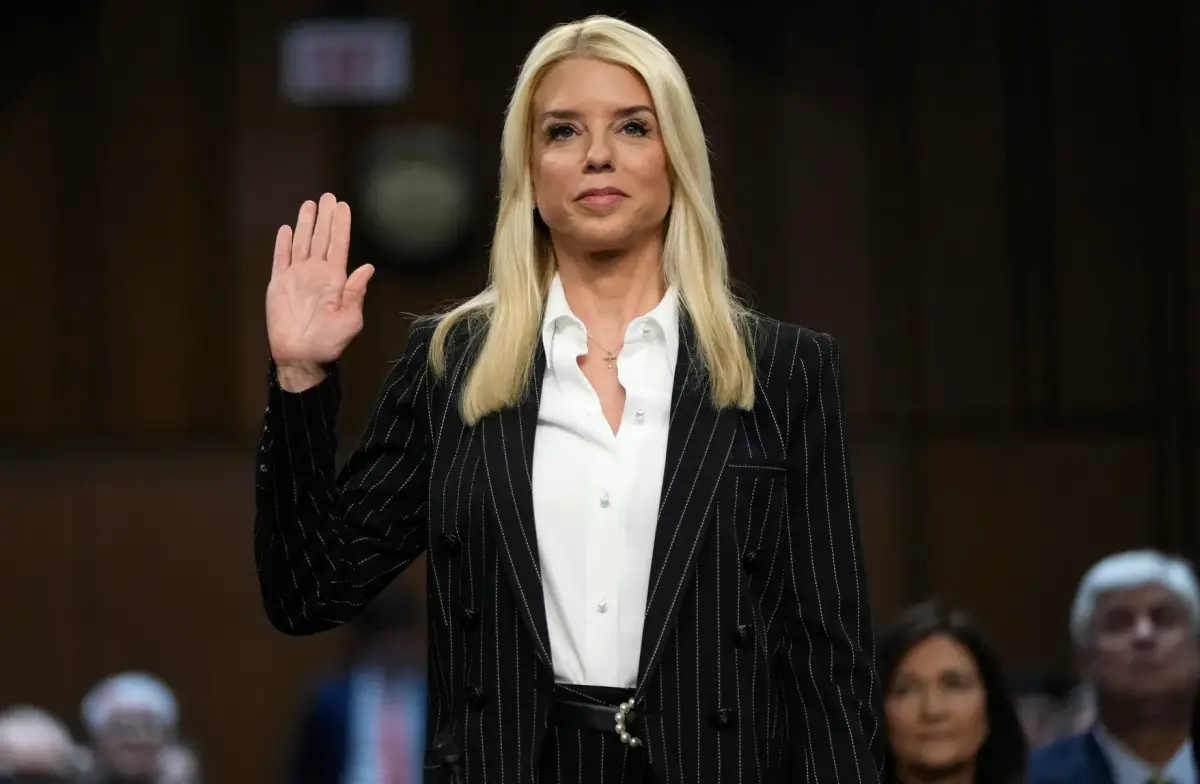In a dramatic move that could reshape the national debate on sanctuary policies, Attorney General Pam Bondi announced on Wednesday that the Department of Justice has filed charges against several New York state officials. The lawsuit targets New York itself, Governor Kathy Hochul, Attorney General Letitia James, and DMV Commissioner Mark Schroeder for allegedly failing to enforce federal immigration laws.
At a press conference, Bondi stressed that this legal action is a cornerstone of the new DOJ’s commitment to safeguarding American citizens and holding state authorities accountable. “We are here today to announce that we have filed charges against the state of New York, against Kathy Hochul, and against Letitia James and Mark Schroeder from the DMV,” Bondi declared. “This represents a new DOJ, and we are taking decisive measures to protect Americans.”
The lawsuit comes amid growing criticism of New York’s sanctuary policies, which Bondi and federal prosecutors argue have compromised public safety. One of the most harrowing examples cited by Bondi was the case of Tammy Nobles, a grieving mother who shared her tragic experience during the press conference. Nobles recounted how her daughter was murdered by an MS-13 gang member from El Salvador—a crime she believes was made possible by the state’s lax enforcement of federal immigration laws. “New York has opted to prioritize illegal aliens over American citizens. This must end. It must end today,” Bondi stated, underlining the urgent need for reform.
The legal documents assert that New York state officials have deliberately obstructed federal immigration enforcement efforts. Bondi’s lawsuit argues that by refusing to cooperate with federal authorities, these officials have endangered the lives of American citizens. This case is one of several filed nationwide that invoke Section 3 of the 14th Amendment, aimed at disqualifying public officials who hinder lawful federal directives.
Bondi’s office has long been at the forefront of efforts to clamp down on sanctuary jurisdictions. In recent months, a series of directives have been issued to state and local governments, reminding them that they must adhere strictly to federal immigration laws. A key memorandum stated, “State and local jurisdictions are required to comply with all relevant federal immigration statutes, and must not obstruct or fail to implement lawful directives.” This legal action is seen as a continuation of that policy, with Bondi vowing to dismantle any practices that undermine federal authority.
During the press briefing, Bondi also emphasized the broader scope of the DOJ’s mission. She mentioned that, in addition to immigration enforcement, the department is also focused on dismantling transnational criminal organizations and eliminating corruption within government contracting. “Enhanced resources and careful charging decisions are crucial,” Bondi said. “We are committed not only to immigration enforcement but also to taking down the cartels and criminal networks that exploit our system.”
This lawsuit against New York officials is particularly significant because it marks one of the most direct challenges to sanctuary policies in recent memory. New York has been a focal point of national controversy over its approach to immigration, with critics arguing that its policies have created a safe haven for illegal immigrants at the expense of American safety. Supporters of the policy, however, maintain that these measures are necessary to protect vulnerable immigrant communities. Bondi’s legal action, however, clearly leans toward a stricter interpretation of federal law.
In a separate but related development, the DOJ has previously taken similar legal action against Illinois. Bondi noted that New York’s failure to heed warnings and comply with federal mandates left no choice but to pursue legal remedies. “We have already sued Illinois,” she pointed out, “and since New York did not heed our warning, it is now your turn.” This statement reinforces the administration’s determination to enforce immigration laws uniformly across the country.
The reaction to Bondi’s announcement has been mixed. Supporters of the move applaud the DOJ for taking a firm stand against what they perceive as state-level resistance to federal law. Critics, on the other hand, warn that such aggressive legal action could further polarize an already divided nation. The debate over immigration policies remains one of the most contentious issues in American politics, and this latest lawsuit is likely to intensify that debate.
As the legal battle unfolds, both state officials and federal authorities are bracing for a protracted conflict. The outcome of this lawsuit could set an important precedent for how sanctuary policies are enforced in the future, impacting not only New York but also other states that have adopted similar approaches to immigration.
With public safety and the integrity of federal law at stake, all eyes will be on the courts as this case progresses. The implications for American democracy and the rule of law are profound, as this legal showdown pits state autonomy against federal authority in one of the nation’s most heated policy arenas.


